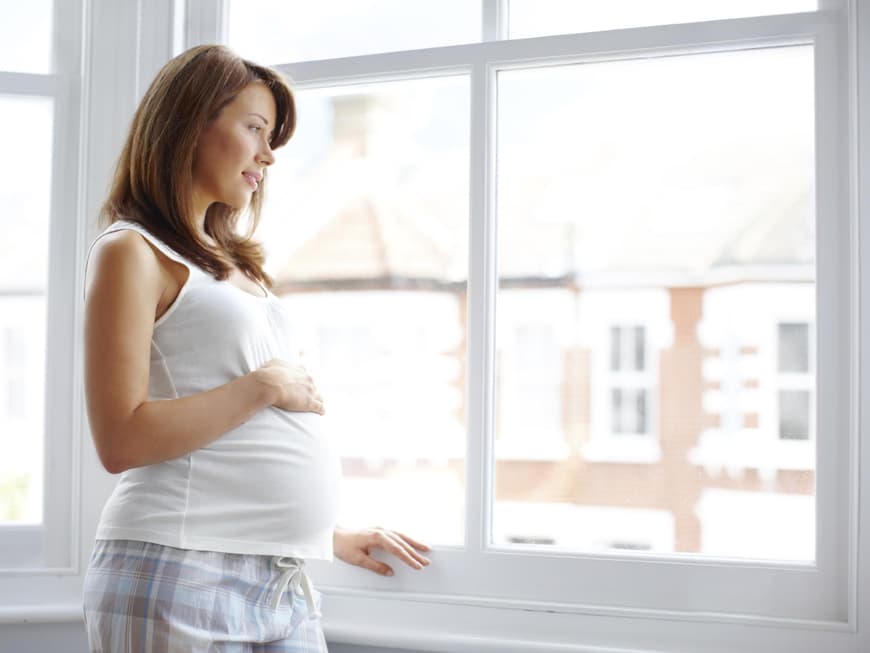
Particularly susceptible to cystitis: pregnant women
Cystitis is triggered by germs that enter the bladder via the urinary tract. During pregnancy, various factors promote the development of an unpleasant and, for pregnant women, dangerous bladder infection: Because the hormone balance changes, the urinary tract widens. This makes it even easier for bacteria to enter the urethra and cause cystitis during pregnancy. In other cases, the enlarged uterus presses so hard on the urethra that the bladder cannot be emptied completely. The remaining urine then provides the ideal breeding ground for bacteria.
Cystitis during pregnancy puts mother and child at risk
If cystitis in pregnant women is not treated promptly or completely, it can lead to serious complications. Expectant mothers should therefore take even the slightest signs of cystitis seriously and consult a doctor. Pain in the lower abdomen can also indicate a urinary tract infection in pregnant women. A protracted bladder infection can not only lead to inflammation of the renal pelvis. Pregnant women also run the risk of the germs migrating to the uterus and triggering premature labor. In the worst case scenario, this can lead to premature birth or even miscarriage.
Prevention and check-ups reduce the risk
The best way to prevent cystitis during pregnancy is to have regular check-ups with your gynecologist. As part of regular check-ups, the urine is examined for signs of cystitis, among other things. This minimizes the risk for pregnant women and their unborn babies.
If cystitis nevertheless occurs, medication is essential for treatment. The doctor will prescribe antibiotics that are tailored to both the pathogen and the needs of the pregnancy. In addition, tried and tested preventative measures and home remedies help to prevent and treat cystitis during pregnancy






